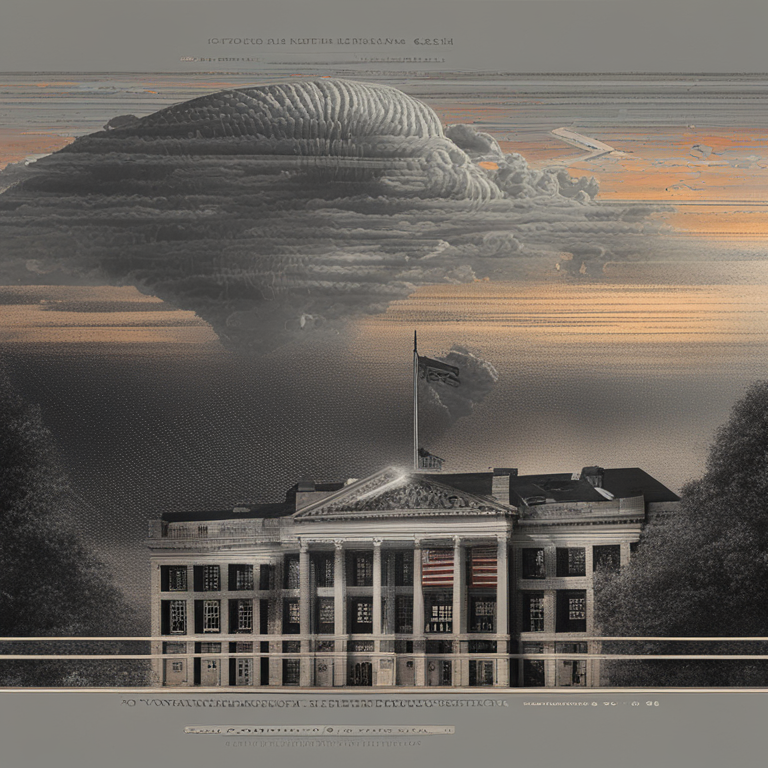Uncle Sam vs. Crypto Privacy: The Tornado Cash Controversy Unwinds
- byAdmin
- 07 May, 2024
- 20 Mins

Uncle Sam vs. Crypto Privacy: The Tornado Cash Controversy Unwinds
Tackling the complex saga of Tornado Cash, an Ethereum application embroiled in a legal maelstrom, reveals the U.S. government's challenging stance on cryptocurrency privacy. Initially designed to enhance user privacy by mingling assets thereby obscuring the origins of digital transactions, Tornado Cash has drawn severe scrutiny and sanctions from U.S. authorities over accusations of facilitating money laundering, particularly by North Korean entities. With the arrest and charging of its developers, this case slices through the heart of the crypto-world, igniting debates over privacy, innovation, regulation, and the seemingly hypocritical governmental stance on privacy technologies. This unfolds as an intriguing narrative wherein the ideals of blockchain's transparency clash with the dark reality of its potential misuse, all under the shadow of governmental actions that themselves spark questions of consistency and fairness in the digital age.
When Uncle Sam Goes Crypto Hunting: The Tornado Cash Scandal Unpacked

Tornado Cash, an Ethereum-based application designed to enhance user privacy by obfuscating the origins of digital transactions, has recently found itself in the eye of a legal storm. This technology, hailed for its innovative approach to preserving anonymity in the blockchain space, has attracted severe criticism and action from the U.S. government, leading to the arrest and charging of its developers. At the heart of this controversy is the application's alleged facilitation of money laundering activities, especially for entities in North Korea. The unfolding drama raises critical questions about privacy, the role of innovation in the financial sector, and the apparent double standards of governmental bodies when it comes to digital privacy technologies.
The saga began with the U.S. Treasury Department branding Tornado Cash a "mixer" and slapping sanctions on it in 2022. Mixers, by their definition, obscure the origin of digital assets, making transactions private. While privacy enthusiasts hail this as a win for personal security, the government views it through a lens of suspicion, associating it with illicit activities, notably money laundering. This tug-of-war has escalated to the legal arena, with charges against Tornado Cash's developers including conspiracy to commit money laundering and operating an unlicensed money transmitting business. These developments have sparked widespread debate within the crypto community, about the balance between innovation and regulation, and the ethical implications of government intervention in technology that promises enhanced privacy.
To add layers to the conversation, a comparison with historical government-sanctioned privacy projects is inevitable. The Onion Router (Tor), developed in the mid-1990s with U.S. Navy and DARPA backing, was designed to allow anonymous communication over the internet. Like Tornado Cash, Tor's technology facilitates private transactions, though it has also been criticized for enabling illegal activities. This juxtaposition lays bare the complex relationship between technology, privacy, and regulatory oversight. It begs the question: If privacy-enabling technologies are both demonized and utilized by government entities, where do we draw the line between lawful privacy protection and illicit secrecy?
Additional Information
When we dive into the intricacies of the blockchain and privacy, the Tornado Cash saga stands as a glaring example of the complex interplay between innovation and legality. The crux of the matter revolves around the vast amounts of money reportedly laundered through the application, notably implicating North Korean entities. This detail not only underscores the international scope of the crypto privacy issue but also shines a light on the monumental challenge of policing global digital transactions. Furthermore, the contrast with sanctioned privacy projects like Tor raises probing questions about the selective enforcement of privacy protocols. With blockchain technology becoming increasingly mainstream, these discussions are not just for cryptographers and tech enthusiasts but have significant implications for global finance, privacy rights, and international law.
Conclusion
In wrapping up the whirlwind narrative of Tornado Cash, it's evident that this isn't just a story about a crypto mixer; it's a saga that tests the boundaries of digital privacy, innovation, and the law. The juxtaposition of the U.S. government's stance on Tornado Cash with its historical backing of Tor paints a picture of a high-stakes battle over the future of privacy and digital autonomy. As the dust settles, the crypto community and regulators are left with more questions than answers. Will there be a reevaluation of what digital privacy means in a blockchain-dominated world? Or will the Tornado Cash controversy serve as a cautionary tale for future innovators? Only time will tell, but one thing is for sure: the conversation around privacy, regulation, and the role of government in the age of cryptocurrency is far from over. If anything, it's just getting started. So, grab your popcorn (and maybe a cryptography textbook), because this debate is bound to shape the future of digital finance.
Ethan Taylor
Ethan Taylor here, your trusted Financial Analyst at NexTokenNews. With over a decade of experience in the financial markets and a keen focus on cryptocurrency, I'm here to bring clarity to the complex dynamics of crypto investments.



